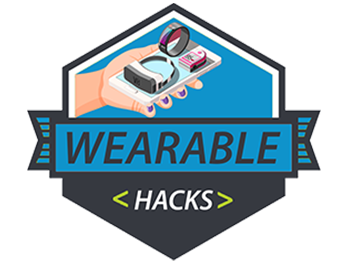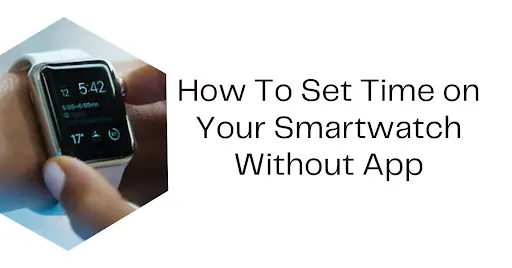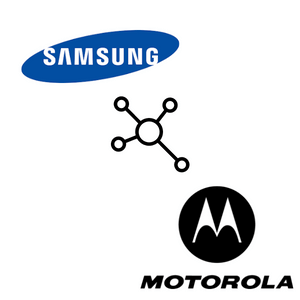How Does Galaxy Watch Measure Stress?
Stress can lead to depression, anxiety, loneliness, self-harm, and suicidal thoughts and feelings. Some people will eat too much or start abusing drugs. According to the Mental Health Foundation, 74% of people are so stressed and overwhelmed, they cannot cope normally. The integration of stress monitoring capability in Samsung Galaxy Watch is therefore one of the most recent advancements in the field of health and wellness.
Generally, stress has a significant impact on the interval between two successive heartbeats (Heart Rate Variability). For example, when you are nervous, your heart beats faster than when you are happy or relaxed. According to conventional wisdom, such a person is stressed. Stress in the context of quick breathing, muscle contractions, and accelerated heartbeat.
Galaxy Watch measures stress by sensing and mapping these variables using hardware sensors and powerful software algorithms built in the device. It uses photoplethysmography technology and an optical heart rate sensor to measure your Heart Rate Variability (HRV). A HRV below 74 beats per minute (bpm) means no stress. However, if it goes beyond 100 bpm, the Galaxy Watch alerts you of critical stress levels.
However, the accuracy of the Galaxy Watch in measuring stress still remains a subject of debate among users and physicians. Keep reading because I will share my findings with you in this article and give you some stress management tips at the end.
Do you also use the Galaxy Watch to monitor your heart health? I have another blog post where I investigated the reliability of the Samsung Watch electrocardiogram. Is Samsung Watch ECG Reliable?
How does Samsung Galaxy Watch measure stress?
Samsung Galaxy Watch relies on built-in optical heart rate sensors, photoplethysmography technology, and the Samsung Health app to measure stress.
Let us take a quick look at them.
Photoplethysmography (PPG) technology
The Galaxy Watch uses photoplethysmography (PPG) technology to measure your stress levels. PPG involves green light emission to measure tissue changes on your wrist, which are caused by blood circulation.
High blood volume to the wrist reflects less light to the sensors and low blood volume reflects more light. That is because blood absorbs great amounts of the green light emitted by the smartwatch and it reflects red light.
By flashing the green LED lights multiple times per second on your wrist, Samsung Galaxy Watch can calculate your heartbeat and stress with significant accuracy.
Optical heart rate sensors
Changes to your heart rhythm can then tell whether you are stressed or not. These changes are registered by the optical heart rate sensors. However, many things can influence your heartbeat. Regardless of the cause of increased heartbeat, the sensors assume that a constantly high heart rate, even when exercising, is caused by stress.
It is important to note that stress can be triggered by mental or physical overloads. For example, anxiety or exercises can trigger an increase in your heartbeat. They will reduce your Heart Rate Variability and the Galaxy Watch will interpret the situation as stressful.
For that reason, it is advisable not to over-rely on the optical heart rate measurements as a medical truth. Still, you should seek medical advice to validate or invalidate those claims.
Samsung Health app
Formerly known as S-Health, the free Samsung Health application was developed by Samsung and released in July 2012 to help Samsung Watch users to track their health and fitness activities. Today, anyone can use the application. It runs on newer versions of Android and iPhone smartphones.
All your fitness and health data collected by the Galaxy Watch through the optical heart rate sensors are sent to Samsung Health for processing. The application uses several factors to determine your stress levels. For example, it will track your sleep and compare it against the sleep required by an average person. It does the same to your blood oxygen concentration (SpO2), body temperature, and exposure to ultraviolet radiation.
All you need to do is sync your Samsung Watch data with Samsung Health. The app offers a straightforward stress measurement process that will keep you on top of your mental health. Samsung health will show you three different icons on the screen. One for heart rate, the other for oxygen saturation, and lastly for your stress level.
Are Galaxy Watch stress measurements accurate?
A 2018 study by the Heart Rhythm Society revealed that the photoplethysmography (PPG) technology in Samsung Galaxy Gears was 100% accurate. According to the study, age, sex, and the type of rapid heart rate did not influence the precision of the Galaxy Watch. In other words, using the watch’s Heart Rate Variability to track your stress levels will give you reliable results.
However, if you are using your Galaxy watch with the Samsung Health app, you must take certain precautions to increase its reliability. Ensure that you wipe the sensors before placing the Watch on your wrist. Most importantly, make sure that you are relaxed. Do not measure your stress level when you are just coming from a workout because heavy breathing will distort the results.
How can I manage stress?
Following the covid-19 pandemic, stress has become a very common phenomenon. It is caused by several things including small daily hassles, worries, and overwhelming responsibilities. During these times of uncertainty, facing big changes and being under lots of pressure can also stress you.
However, the heart rate sensor at the back of the Samsung Galaxy Watch is essential for assessing your stress levels. Furthermore, the Samsung Health app will give you AI-generated recommendations and assistance to deal with the stress.
But medically, there are a few things I’d recommend every time your smartwatch warns you that your stress levels are critical.
Here are some ways you can avoid and manage stress with or without relying on the Samsung Watch;
- Have realistic goals and expectations
- Develop a healthy exercise schedule to feel better and develop a positive attitude
- Eat healthy, balanced diet and drink plenty of water
- Practice meditation and mindful breathing techniques
- Practice time-management skills to reduce stress triggers
- Learn to say “No” to demands that may add too much stress on you
- Listen to music
- Seek professional stress counseling
Conclusion
The Galaxy Watch measures stress using optical heart rate sensors located at the back of the smartwatch. The green LED light emitted by the smartwatch is absorbed by the blood and the sensors measure the amount of red light emitted from your bloodstream to calculate your Heart Rate Variability.
If you are interested in more than just your stress levels, you can integrate your wearable device with the Samsung Health app. The app will make a comprehensive assessment of your health and fitness data, which are vital to stress and mental health management.







